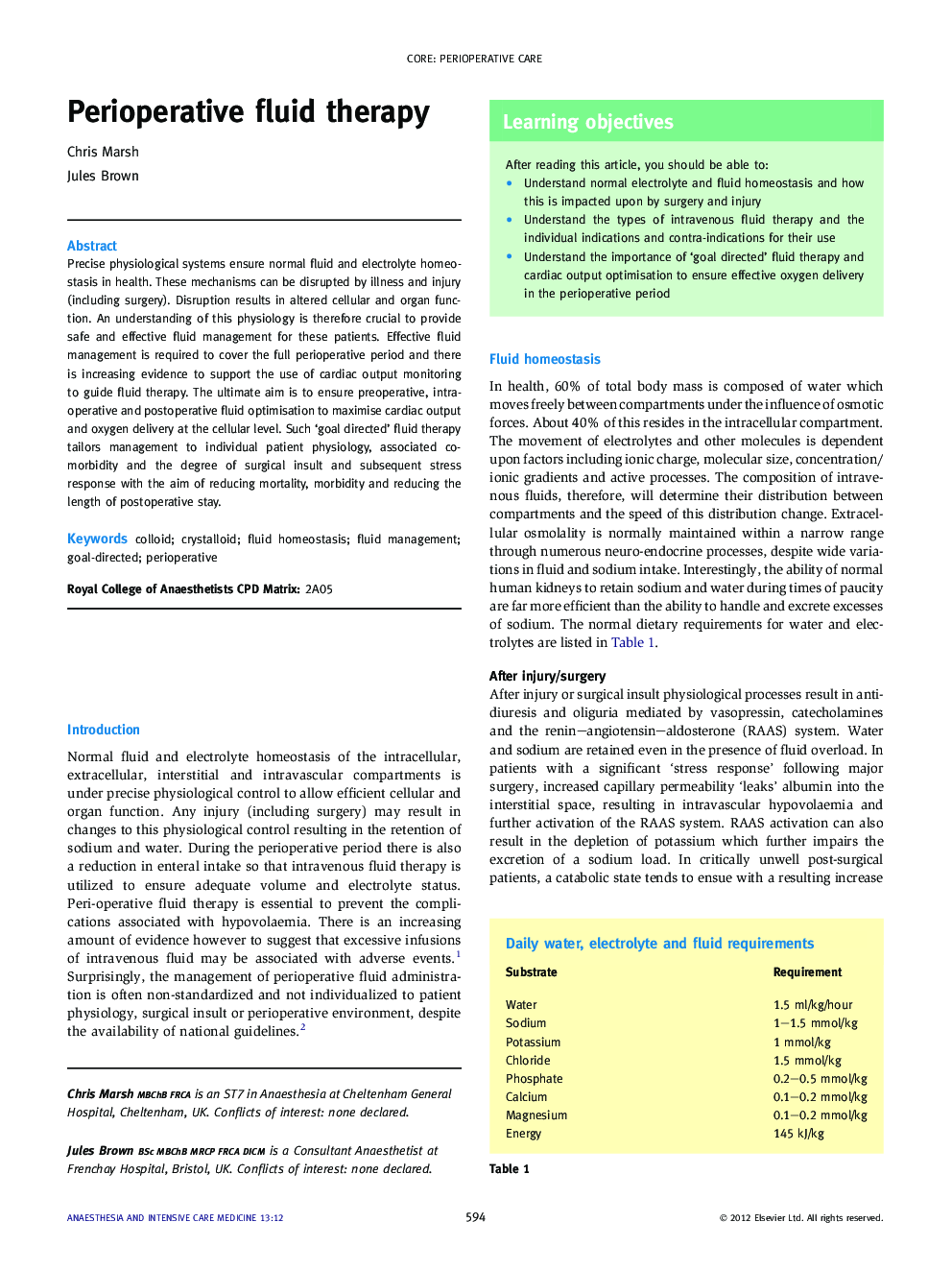| Article ID | Journal | Published Year | Pages | File Type |
|---|---|---|---|---|
| 2742509 | Anaesthesia & Intensive Care Medicine | 2012 | 4 Pages |
Precise physiological systems ensure normal fluid and electrolyte homeostasis in health. These mechanisms can be disrupted by illness and injury (including surgery). Disruption results in altered cellular and organ function. An understanding of this physiology is therefore crucial to provide safe and effective fluid management for these patients. Effective fluid management is required to cover the full perioperative period and there is increasing evidence to support the use of cardiac output monitoring to guide fluid therapy. The ultimate aim is to ensure preoperative, intra-operative and postoperative fluid optimisation to maximise cardiac output and oxygen delivery at the cellular level. Such ‘goal directed’ fluid therapy tailors management to individual patient physiology, associated co-morbidity and the degree of surgical insult and subsequent stress response with the aim of reducing mortality, morbidity and reducing the length of postoperative stay.
